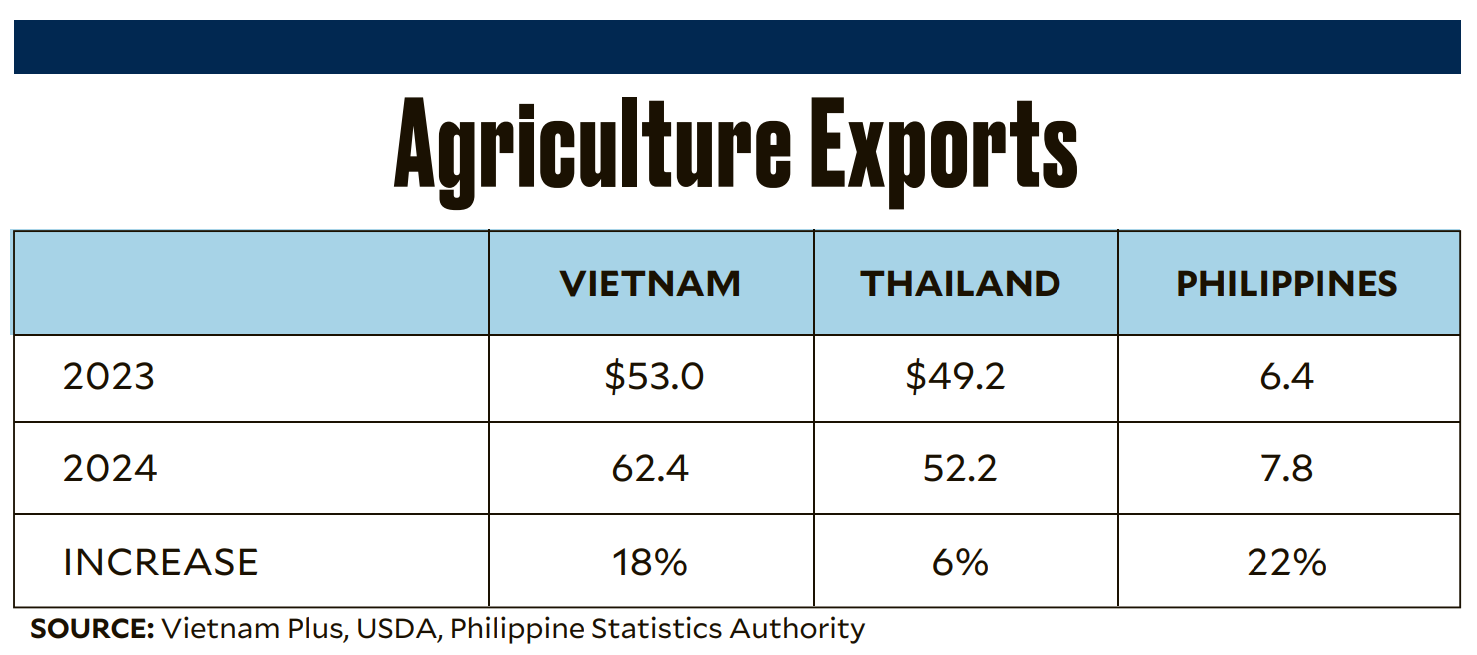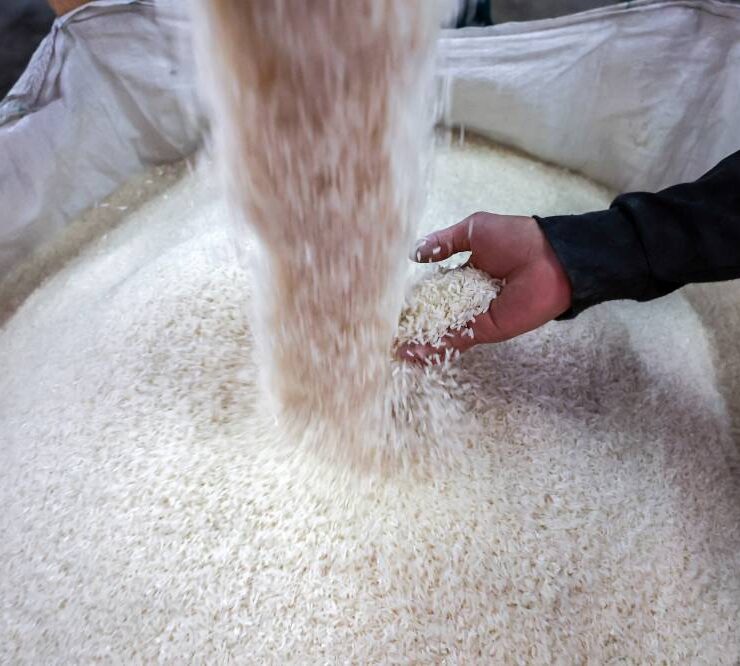To help reduce poverty, send more agri products abroad

Exports create jobs, which in turn reduce poverty.
More attention, however, should be given to agriculture exports, where local value added is 80 percent. This is far better than electronic exports, where value added averages just 15 percent. Though all exports should be promoted, job creation and poverty reduction is greater vis-a-vis agriculture exports.
The problem of agriculture exports lies not in marketing, but in supply. How can you market aggressively when there is no supply? This was highlighted at the May 19 launch of the Banana and Mango Industry Revitalization and Export Development.
Two separate memorandums of understanding were signed by Agriculture Secretary Francisco Tiu Laurel Jr. and the private sector leaders of the banana and mango industries. Through the Department of Agriculture’s Export Development Office (EDO), they addressed key issues such as managing diseases, improving production processes and opening new markets.

Supply emphasis
Tiu Laurel created the EDO on January 8 this year. The term “development” in their name was used to emphasize that they meant not only promotion but also production. This means addressing both demand and supply.
Unfortunately, the EDO today does not have sufficient authority and supervision of the production component of the export products currently under different DA units. Of course, there are growing pains, which are understandable.
While the Department of Trade and Industry (DTI) has always had export units, it was only this year that the DA created one. There has, therefore, been some delay in the execution of the supply aspect in export development.
Nevertheless, significant success was already seen. The most notable achievement is the active participation of the private sector, motivated by Tiu Laurel’s advocacy of the private sector playing a lead role in agriculture development.
Attached to this column is a table we constructed that shows how our agriculture exports compare to Vietnam’s and Thailand’s.
Both these countries were way behind the Philippines before. They are now very much ahead—with their knowledge even sourced from Philippine institutions such as the University of the Philippines Los Baños. They have achieved this partly because their governance may have been better than ours.
While we are glad that we had the largest increase of 22 percent ($7.8-billion agriculture exports), we produced less than one-sixth of Vietnam’s $62.4 billion and Thailand’s $52.2 billion. If we had only managed our agriculture exports with better governance as they did, we would not have had to send our people overseas for remittances, totaling $383 billion last year but at great cost to families.
Three categories
What therefore is the solution? It is to have more export product programs such as those done recently for bananas and mangoes. So far, these programs have covered other products like coconut, cacao and coffee.
Stakeholder meetings are still being arranged by the Bureau of Fisheries and Aquatic Resources for seaweed, shrimp, shellfish, milkfish and tilapia. It is hoped that these meetings are held very soon, because time is of the essence in our rapidly changing global environment.
Our export strategy currently focuses on three categories. The first is “protect and lead” or to “focus on cost and supply of priority core products.” These include current winners such as coconuts, bananas, pineapples, tobacco and tuna with other fishes.
The second is “hasten growth” or “consolidate and promote potential products for the mainstream.” These include seaweed (carrageenan), mango, crustaceans, mollusks, biscuits and condiments.
The third is “create growth” or “nurture emerging products.” These include cacao, coffee, durian, calamansi, abaca, livestock and poultry and nonfood agriculture products such as activated carbon, coco board and bamboo.
With Tiu Laurel’s emphasis on agriculture exports and private sector participation, more jobs are expected to be created and poverty rates consequently reduced.
The author is Agriwatch chair, former secretary of presidential flagship programs and projects, and former undersecretary of the Department of Agriculture and the Department of Trade and Industry. Contact is agriwatch_phil@yahoo.com.





















